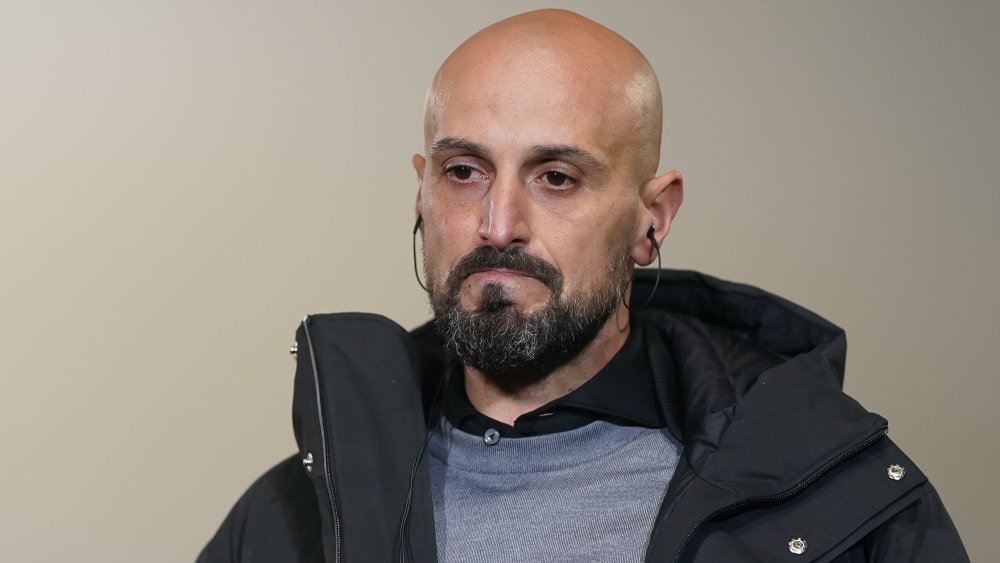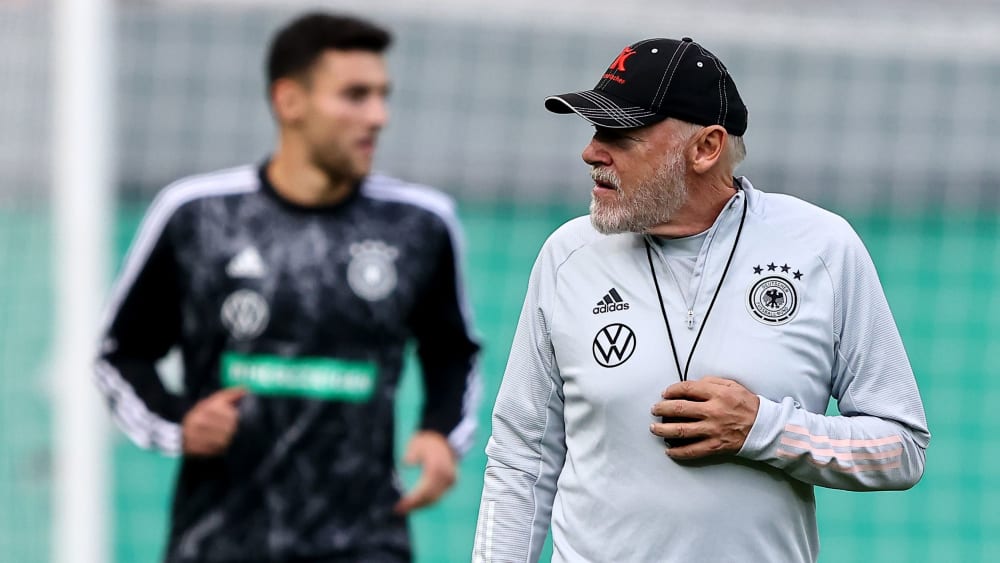The co-coach of the German U 21 spoke about the causes the day after the 0:4 defeat against Poland. And about fundamental things.
..the 0:4 against Poland: “We have qualities, they are undoubtedly there, but we also have to call them up in the important games, we weren’t able to do that against Poland. But games like that happen. Everyone knows that a lot can happen and also go wrong in a game. Of course, the opponent was very effective, scoring three times, three goals. But with only ten men, we actually played passably afterwards.
We made mistakes in defence, but also in front of the opponent’s goal. I also saw that we created chances to score, not so many and so clear, but I also saw that we missed them. Of course, the mistakes are clearly addressed. You learn more from negative experiences than from positive ones. I assume we have learnt and it won’t happen again like this.”
The situation in the qualification for the U-21 European Championship: “It has become more exciting. If we had won, we would have had only one competitor left, the Israelis. But now everyone is back in it. But we didn’t do that on purpose, we already wanted to win. But we wanted to play nicely and win. We didn’t manage to do that.”
Head coach Antonio Di Salvo: “I’ve known him for a long time because I knew him when I was a player and I had him in a game as a coach as well. He is the boss and I try to be helpful to him. “

Development of young players: “I think that we have to make different adjustments. We have to train one-on-one and tackling very early, we have to put the ball in the foreground. We have to create a training programme that the children enjoy and look forward to. That’s the task in the youth. “
Exposure: “At a young age we have to go for it. With small forms of play, three-on-three, so that the children have a lot of contact with the ball. We used to play eight hours in the holidays when we were kids. When I started at FC Bayern, we trained twice a day, especially during the holidays. Nobody was injured then. Today you don’t hear about adaptation and supercompensation, today I only hear about systems and load control. They didn’t exist back then. Practice makes perfect, that was the case 50 years ago, is the case today and will be the case in 50 years.”
Structural problems: “If you check the academies, for example FC Bayern’s U 19 has 29 players in the squad. That means: If the coach doesn’t change players and they are all healthy, 18 watch. That’s outrageous! The young people have to play football. Also in training. Always play.”
One-on-one: “When I see how strong we used to be in defence, today we always work as a team. Still, it’s much better when a player has a solution in one-on-one. Also in the offensive. We have to teach the players to dribble, but if I only ever ask them to pass, pass, pass and make every play with only two contacts, then I can’t develop a dribbler.
If I want to help them, I have to say: dribble, dribble, dribble! And when he loses the ball, do it again. Then they can dribble at 19. But if they only passed the ball until 17, they can’t dribble at 19. And: in the youth sector, the focus is on the training of the players and not the success of the team.”
Tactics: “We used to play eleven against eleven, today we play 3-4-3, 4-4-2, 4-1-4-1, 5-4-1 and two or three other systems. At junior level, we have to make the content different.”
His motivation: “I just enjoy teaching young people. And when a player says afterwards that he has learned something, that’s something really nice for me. I owe so much to football, so I don’t want to just throw my knowledge away, but share it and pass it on. “





